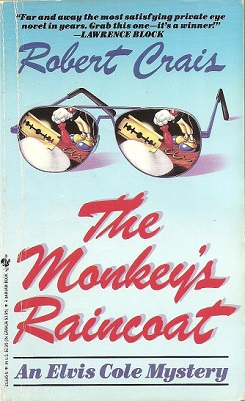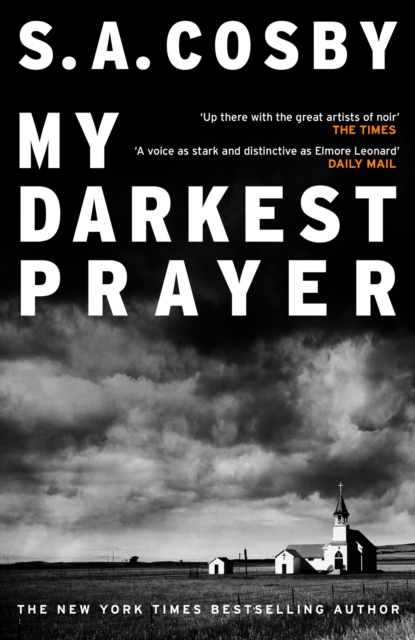 by Barb Goffman and Sherry Harris
by Barb Goffman and Sherry Harris
Songwriter Paul Simon may be an island, but for many authors we know, writing works better when people work together. Whether it comes from an editor or a critique group, feedback and brainstorming can be a hugely important part of writing. They also can be an important part of sleuthing. Characters usually need feedback as they try to figure out whodunit, which is one reason why the sidekick character is so prevalent in crime fiction.
Yesterday on the
Wicked Cozy Authors blog, author Sherry Harris and I discussed dynamic duos in the writing process and how we've worked together. We also talked about dynamic duos in fiction, including my character Job and his unusual sidekick, God, from my story
"The Lord is My Shamus" (available in my collection,
Don't Get Mad, Get Even). Sound interesting? Pop on over to the other blog by clicking
here. But then come back, because now we're going to wade into Sherry's fictional duos and then discuss some of our personal favorites by other authors.

Sherry, in your books, your main character, amateur sleuth Sarah Winston, has two friends who serve as her partner, but they both play very different roles. Can you talk a little about Carol and Stella?
Sherry: Sarah has known Carol for twenty years. They met right after Sarah met her now ex-husband, and they bonded as military wives. Fast forward to the present, and they've ended up living in the same town, Ellington, Massachusetts. Carol is invested in Sarah and her complicated relationship with her ex. She likes going to yard sales with Sarah, and Sarah knows that Carol will always be on her side. It's this long-time friendship that
has prompted Sarah to step in when Carol is accused of murder
(
The Longest Yard Sale), and it's why the two work so well together when Sarah needs to think things through. And Carol's the kind of friend who tosses her car keys to Sarah without hesitation when Sarah's running away in
All Murders Final! (coming out from Kensington on April 26th).

Stella is a new friend and Sarah's landlady. She isn't judgmental, listens, and is thoughtful with her answers. Since Stella is also single, she's usually up for a last-minute adventure, whether it's going to a karaoke bar or heading out in the middle of a blizzard. Because Stella is a new friend, Sarah sometimes feels more comfortable doing things with her that she'd never do with Carol, simply because their friendship is built on different interests. As you pointed out recently, Barb, the three of them have never hung out together--that might be something for a future book.
Do you have a favorite duo in a series, Barb?
Barb: There are so many great ones, but a duo that jumps immediately to mind is Stephanie Plum and her friend Lula in Janet Evanovich's seminal series about a New Jersey bounty hunter. Lula is always up for anything (especially going through the drive-through at Cluck-in-a-Bucket). If
 |
| The book that started it all |
Stephanie needs to go on a stakeout, Lula's there to serve as a second pair of eyes. If Stephanie needs to find and capture someone who skipped court, Lula's there to help with the takedown. And if Stephanie needs to eat a snack, Lula is definitely there to eat the leftovers, and then some. Having a fearless friend when you're a bounty hunter is awesome. And having a friend who's a hoot is great when you're the star of your own series--readers love humor. What about you, Sherry? Is there a duo that stands out to you?
Sherry: I love Stephanie and Lula too. Another interesting duo is in Chris Grabenstein's John Ceepak mysteries. (Chris, if you are out there, please, I'm begging you, write more!) (Barb here: Me too!) The duo in this series is John Ceepak and Danny Boyle. John is a West Point grad and military
 |
| The first John Ceepak mystery |
veteran with a strict moral code that he won't deviate from. Danny is a part-time cop, part-time party boy. Their relationship starts out with John as the mentor, and Danny idolizes him. But Danny brings something to the relationship too--smarts and a zest for life. They both approach the world very differently, but ultimately they learn from each other.
Barb and I both love the relationship in Julia Spencer-Fleming's Clare Fergusson and Russ Van Alstyne mysteries. Here is a completely different way to approach a duo from our first two examples. Barb, what makes them work?
Barb: Chemistry. It's one of those rare things that's hard to teach how to do, but wow, does Julia Spencer-Fleming do it well. These two characters are so wonderful together. They start out as friends, a sexual tension grows over the series, and then as their lives change, their relationship changes and grows. (I'm being vague because I don't want to ruin things for anyone who hasn't read the series yet. Go forth and buy all the books right now. You won't be disappointed.) Russ is the local police chief. Clare is an Episcopal priest. They're fun characters to spend time with--not
 |
| We love this book! |
preachy. They both care about people and their town and are willing to stick their necks out for others, and for each other.
Sherry, am I missing anything?
Sherry: I love that Clare was an army helicopter pilot before she became a priest. It adds another layer of depth to her character. Also that Russ is married--that dynamic--priest and married police chief--is brilliant. I wish I could think of something as interesting and pull it off like Julia does. The first book in the series,
In the Bleak Midwinter, has one of the best opening lines ever written.
It's amazing to us how different each of these examples are, yet how well they all work. Readers, do you have a favorite fictional duo?
![]()














